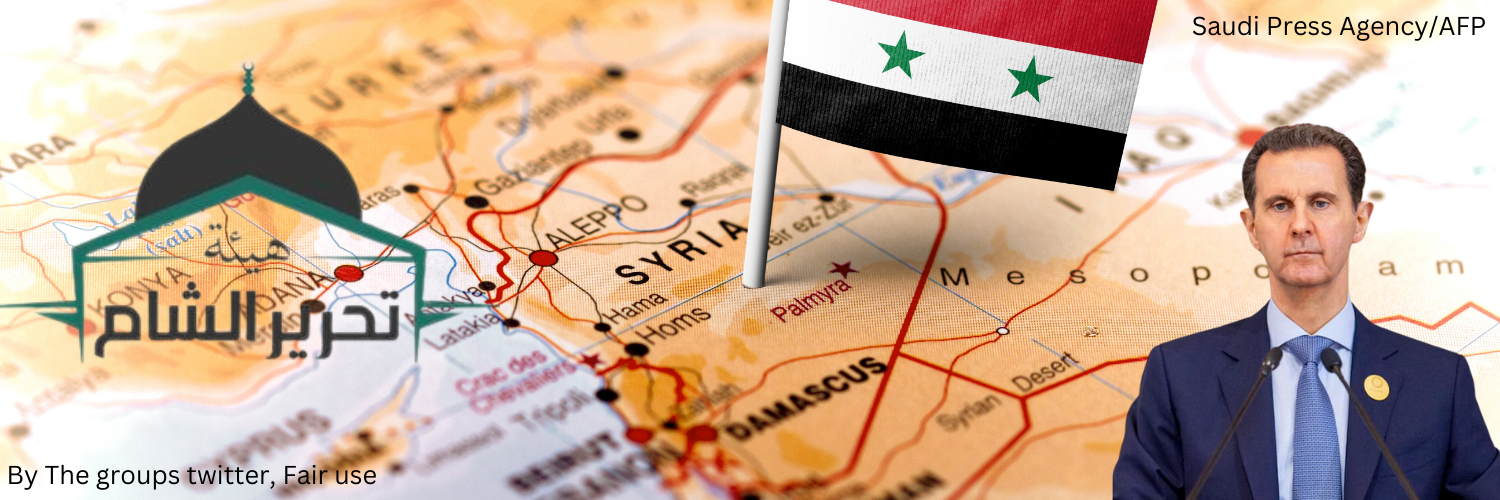Dissent Dispatch: Current Perspectives
This week we discuss Syria in The Unbelief Brief while EXMNA Insights questions if the Quran can coexist with the Universal Declaration of Human Rights.
The Unbelief Brief

The Assad regime in Syria has been deposed, and a new government made up of the rebels who overthrew him is set to take power. Plenty has been written elsewhere on the geopolitical implications of this development—but what will this mean for freedom of conscience and women’s rights in Syria? There is no question that the Assad regime was brutal, oppressive, and murderous, and its purported commitment to secularism seems to have been opportunistic at best. In any active warzone where civilians are being killed, concerns about whether religious and public life are sufficiently separated tend to take a backseat to more immediate problems. Now that the war is over, it’s worth considering who will be taking Assad’s place.
The principal actors, Hayat Tahrir al-Sham (HTS), are an Islamist group led by former al-Qaeda member Abu Mohammed al-Jolani and are classified as a terrorist organization by the US government. While al-Jolani has, at least publicly, disavowed al-Qaeda and taken a more moderate posture in the last decade, The Guardian reports “serious human rights concerns in the area [HTS] controls, including executions for those accused of affiliation with rival groups and over allegations of blasphemy and adultery.” If true, this is certainly cause for concern.
Early pronouncements made by the rebels, however, appear promising: they have vowed that there will be no dress codes enforced against women, “including requests for modesty.” They have also affirmed a commitment to personal freedoms and individual rights. But, as the saying goes: deeds, not words. The number of Islamist countries that have lived up to such promises is approximately zero. Recall, too, the Taliban’s PR campaign of “moderation” in 2021; three years later, women in Afghanistan have all but vanished from public life. For now, we can welcome the end of war but should remain cautiously optimistic.
To close, a brief update on the proposed “Islamophobia” (i.e. blasphemy) law in the UK: following a non-committal answer from Prime Minister Keir Starmer on whether he would support legislation banning the desecration of Abrahamic religious texts, Humanists UK has received “reassurances” from the government that there will be no reintroduction of blasphemy laws to Britain. Whether that means de facto blasphemy laws that claim to combat “religious hate” take their place is yet to be seen.
EXMNA Insights
In the wake of yesterday’s Human Rights Day, we explore whether or not the Quran and the Universal Declaration of Human Rights can truly coexist.
In the 1948 Universal Declaration of Human Rights (UDHR), the United Nations established a framework of fundamental rights that promote freedom, equality, and dignity for all individuals. Quranic principles, particularly as interpreted and implemented by most Muslim and Muslim-majority countries, conflict with these universal human rights. Below, we examine specific areas of tension:
1. Equality of Men and Women (UDHR, Article 1 & 2)
Quranic Verses:
2. Freedom of Religion and Belief (UDHR, Article 18)
Quranic Verses:
"If they turn away [from Islam], seize them and kill them wherever you find them..." (4:89)
"And fight them until there is no fitnah [disbelief or discord] and religion is for Allah alone." (2:193) Apostasy laws in many Islamic states are derived from such verses, directly opposing the UDHR’s principle of religious freedom.
3. Prohibition of Cruel, Inhuman, or Degrading Punishment (UDHR, Article 5)
Quranic Verses:
4. Equality Before the Law (UDHR, Article 7)
Quranic Verses:
"The testimony of a woman equals half that of a man." (2:282) This principle undermines equal treatment under the law, particularly in judicial proceedings.
While some Muslim reformers have sought to reinterpret “problematic” Quranic verses through contextual or metaphorical approaches, their efforts have been largely ineffective. The Quran’s claim to be the literal and unalterable word of God creates a significant barrier to change. Attempts to alter or water down these verses frequently provoke accusations of blasphemy, thereby stifling reform and fostering a culture of fear and repression. This dynamic has led to ongoing conflict within the Muslim world, as any challenge to orthodox interpretations is met with severe resistance. True progress and the embrace of universal human rights will remain elusive unless the Muslim world recognizes that Islam is truly incompatible with modern values. Only by absolving themselves of the constraints of Islam entirely can Muslim societies fully commit to progressive reform and human dignity for all.
What do you think? Share your thoughts and engage with us at [email protected].
In the meantime, check out the recording of our October 29th panel discussion, Ensuring Peace and Justice: Ending Extrajudicial Killings from Anti-Apostasy and Blasphemy Laws for more on human rights violations and other UDHR infractions.
Until next week,
The Team at Ex-Muslims of North America
P.S. We’d love to hear from you! Share your feedback at [email protected].


